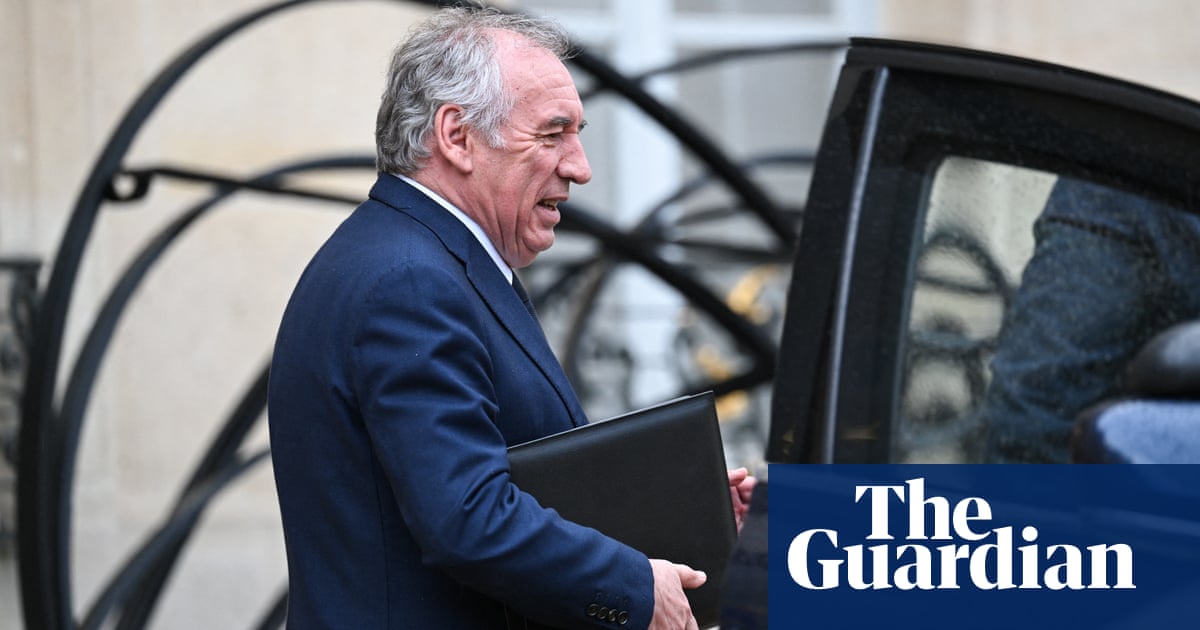The daughter of the French prime minister,François Bayrou, has said she was brutally beaten at a private Catholic school at the centre of a growing sexual abuse scandal that has shocked France.
Hélène Perlant, 53, toldParis Matchthat a senior priest at Notre-Dame de Bétharram beat her in front of her peers during a summer camp in the 1980s, when she was 14, but said she had never told Bayrou.
The Bétharram scandal, which has been growing for several months, has shaken the prime minister’s position. He faces questions over whether he knew about decades of alleged widespread violence and sexual abuse at the school and did not act.
Bayrou, a former education minister who has been a local politician in the south-west area near the school for many years, had three of his children at the school, and his wife taught catechism there. He has repeatedly denied any knowledge of abuse allegations.
Perlant, whose story is part of abook by survivorsto be published this week, said: “One night when we were unpacking our sleeping bags, [Father] Lartiguet suddenly grabbed me by the hair, dragged me across the floor for several metres, then punched and kicked me all over, especially in the stomach … I wet myself and stayed like that all night, damp and rolled up in a ball in my sleeping bag.”
She added: “Bétharram was organised like a sect or a totalitarian regime putting psychological pressure on pupils and teachers so they stayed silent.”
Perlant told Paris Match that she had never said anything to her father about what had happened. “I kept quiet about it for 30 years,” she said. “Perhaps unconsciously I wanted to protect my father from political blows he was receiving locally.”
In total, 200 legal complaints have been filed since February last year accusing priests and staff at Bétharram of physical or sexual abuse from 1957 to 2004. Ninety of these complaints allege sexual violence, including one that alleges group rape by two priests. Two complaints led to charges against a former supervisor over alleged sexual assault of a minor in 2004 and alleged rape of a minor from 1991 to 1994. Some other accusations have passed the time limit for prosecution.
Leftwing lawmakers told parliament in February that Bayrou must have been aware of widespread physical and sexual abuse as early as the 1990s, when he was education minister and when he also served as a local politician. The MP Paul Vannier, of the left party France Unbowed (La France Insoumise),said in parliament: “Prime minister, you lied to MPs to hide your knowledge of violence against children which your responsibilities [at the time] meant you should have denounced.”
Bayrou replied: “I was never informed of anything to do with violence, or sexual violence.” He also said in parliament that people were cooking up an “artificial controversy” against him.
Three of Bayrou’s six children were educated at Bétharram. For several decades, Bayrou held local political and municipal roles in the area. Since 2014 he has been mayor of the nearby town of Pau, where he continues to hold office.
This month the parliamentary commission heard two testimonies under oath that contradicted Bayrou’s assertion that he had no knowledge about allegations concerning the Bétharram school.
Sign up toThis is Europe
The most pressing stories and debates for Europeans – from identity to economics to the environment
after newsletter promotion
Alain Hontangs, an investigator who in 1998 examined an allegation of rape against a priest who had been school principal, said under oath that a judge had informed him the investigation was being delayed because Bayrou, who was then president of the local council, had intervened.
The judge, Christian Mirande, confirmed that he had discussed the allegations of rape with Bayrou, but said he did not remember speaking to the investigator about it. Mirande told the commission he trusted Hontangs’ account.
Bayrou told TV reporters: “I have never intervened in any legal case.”
Bayrou will be questioned by the parliamentary commission on 14 May.
